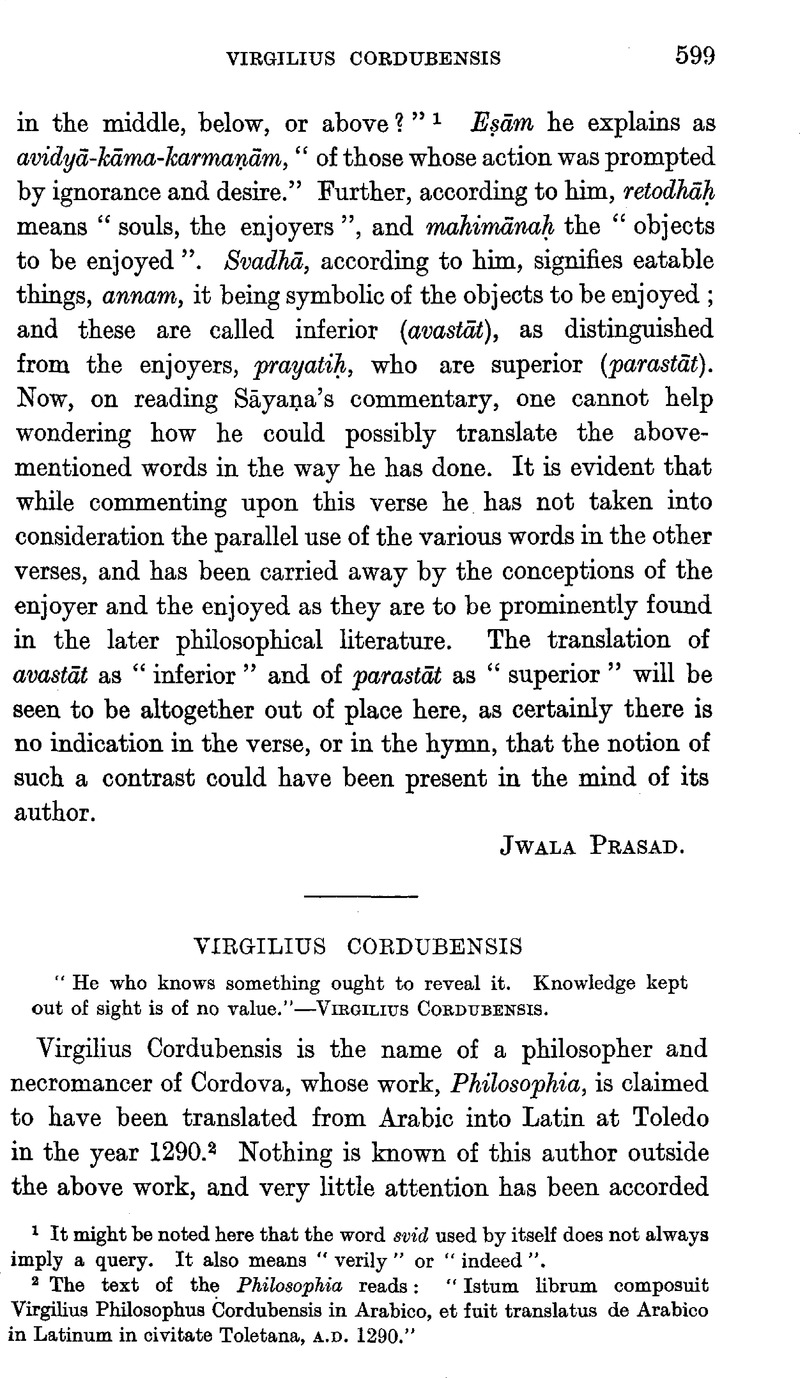No CrossRef data available.
Article contents
Abstract

- Type
- Miscellaneous Communications
- Information
- Copyright
- Copyright © The Royal Asiatic Society 1929
References
page 599 note 2 The text of the Philosophia reads: “Istum librum composuit Virgilius Philosophus Cordubensis in Arabico, et fuit translatus de Arabico Latinum in oivitate Toletana, a.d. 1290.”
page 600 note 1 Biblioteca de Autores Españoles, lvi, 379–81.
page 600 note 2 Memorias para la Historia de la Poesiu castellana, i, 252.
page 600 note 3 Dell' origine e progressi e dello stato attuale d'ogni letteratura.
page 600 note 4 Bibliotheca anecdotorum, Leipsie, 1848Google Scholar.
page 600 note 5 Hermes, viii, 327.
page 600 note 6 Virgilio nel medio evo (1872).
page 600 note 7 Historia de la Filosofía Española (1908).
page 600 note 8 The Marochitani are usually mentioned with those from “beyond the seas” (ultramarini), and they are distinct from the Saraceni, who appear to be the Arab philosophers from the East, as again distinct from those of Al-Andalus proper (Andalici).
page 600 note 9 Virgilius, says: “Isti erant philosophi et magistri Hispaniae . . . Chartaginenses erant septem, Cordubenses erant quinque, scilicet nos Virgilius et Seneca et Avicena et Aben Royz et Algacel. . . . Omnes isti philosophi erant tempore nostro conjuncti in studio Cordubensi et aliqui legebant de suis scientiis et aliqui non.” Heine, 241Google Scholar.
page 601 note 1 Comparetti, ii, 95–6.
page 601 note 2 Bonilla y San Martin, i, 309.
page 602 note 1 The one outstanding name to the contrary is that of the Jew, Faraj ibn Sālim.
page 602 note 2 An ignorant Latin glossator and a later scribe might very well have been jointly responsible for the “contemporaries”. Batman, (Batman uppon Bartholome, London, 1582)Google Scholar says that Avicenna lived in Spain, and that he belonged to the twelfth century! Latin authors also considered Al-Rāzī (Rhazes) to be a Roman!




